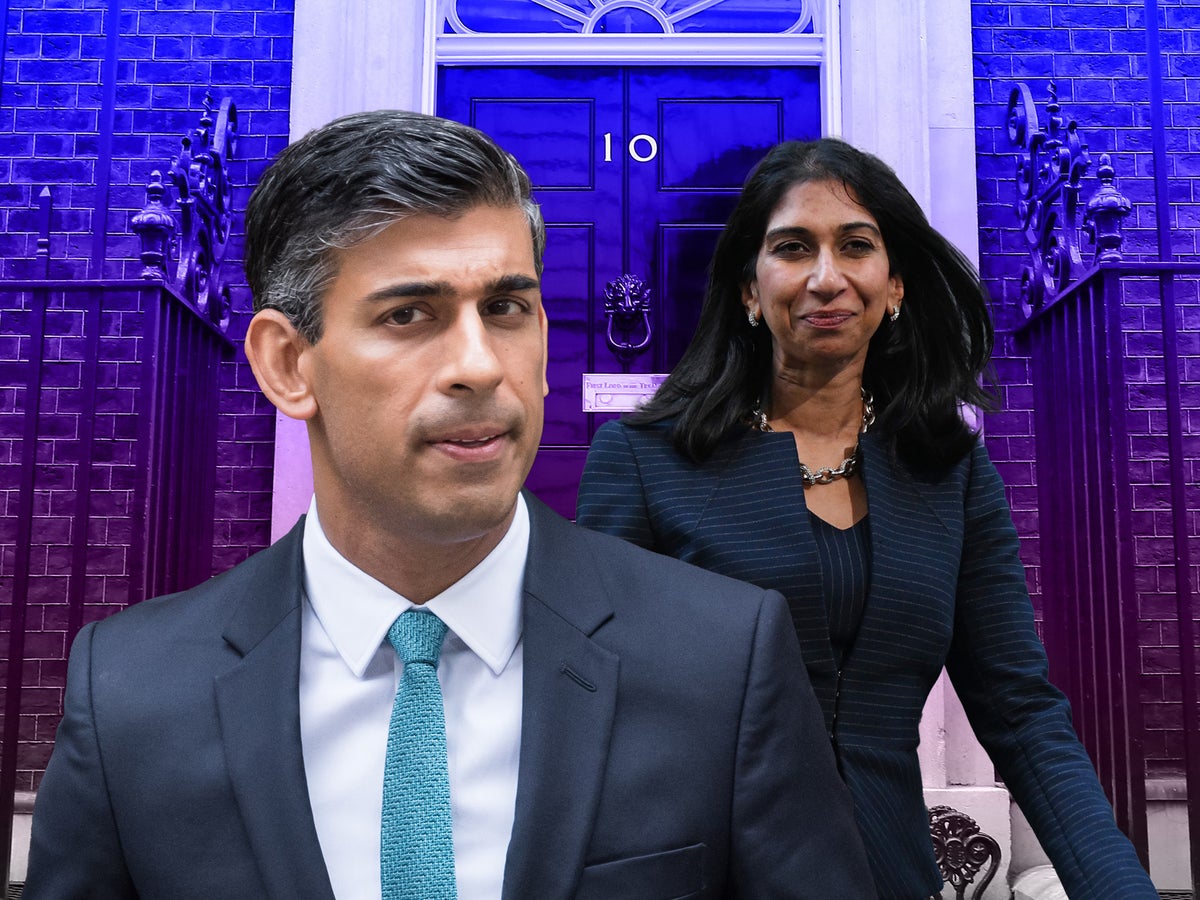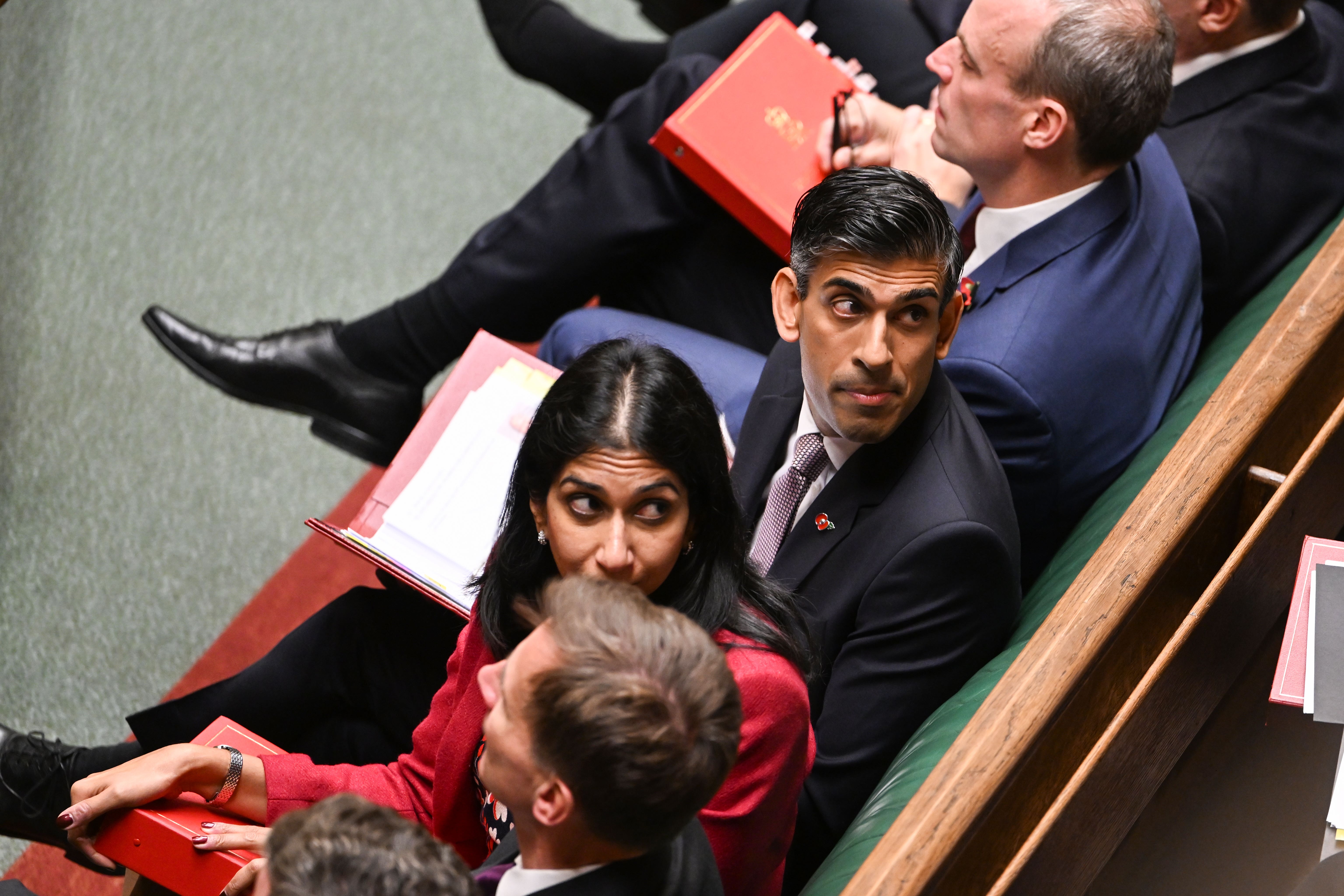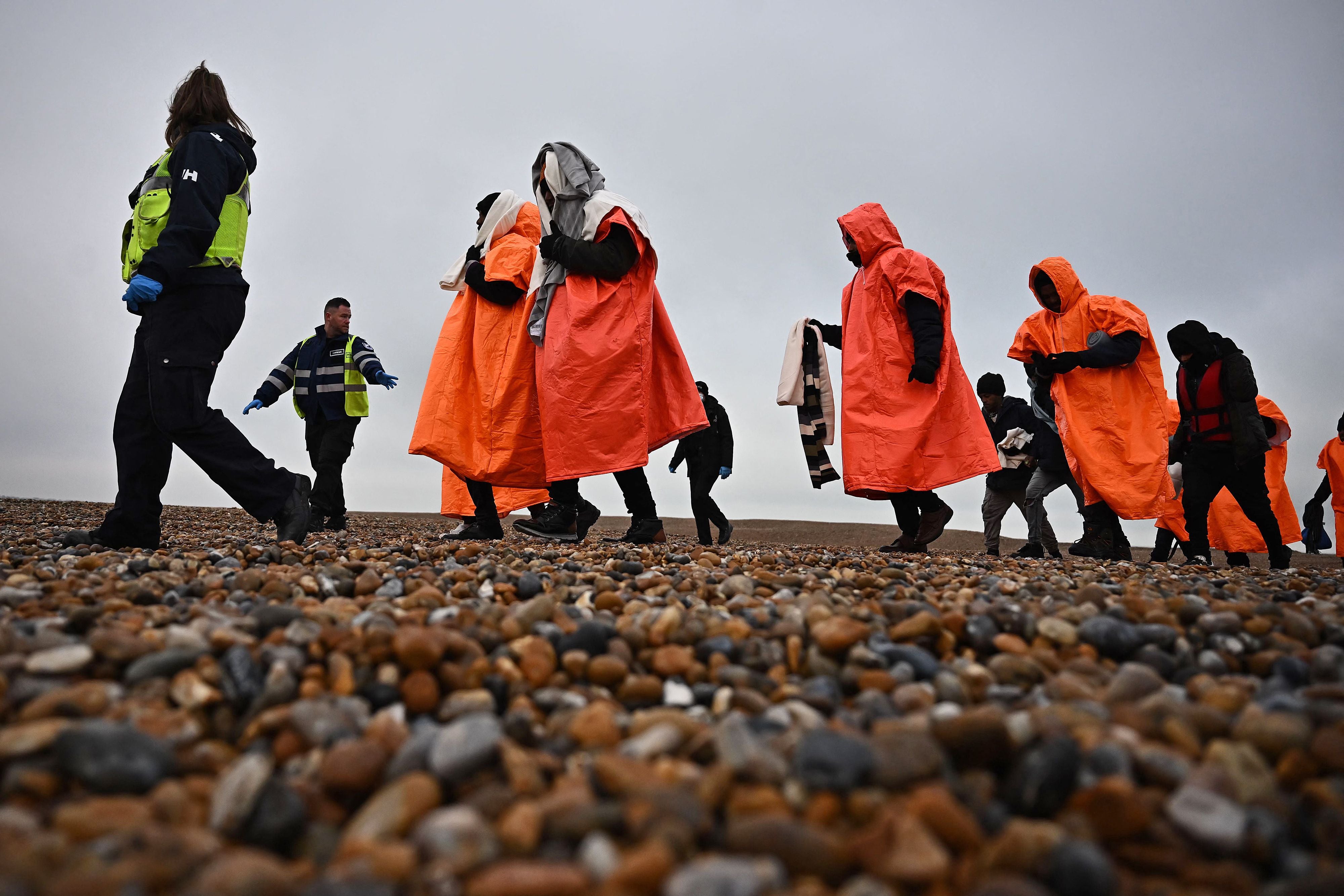
Caroline Nokes became the first Conservative MP to say they would vote against Rishi Sunak’s asylum crackdown – saying the bill gives her “absolute horror”.
The former Tory minister she was “deeply troubled” at the prospect of a policy “which seeks to criminalise children, pregnant women, families and remove them to Rwanda”.
It has emerged that children who arrive in the UK on small boats will be detained in immigration centres under the plan – sparking a backlash among senior Conservatives.
Ms Nokes told Times Radio: “I can’t vote for this. I might be an outlier in my party, but I think we have an absolute duty to treat people humanely to keep people safe. I have absolute horror at the prospect.”
The senior figure, chair of the women and equalities committee, said the government bill was “removing protections for pregnant women, removing protections for families”.
Tory MP Chris Skidmore later said he would not vote for the bill when it goes to the Commons for its second reading on Monday. “I am not prepared to break international law or the human rights conventions that the UK has had a proud history of playing a leading role in establishing,” he tweeted.
Former Tory justice secretary Robert Buckland suggested that he would support the bill at the second reading stage in the Commons on Monday, despite unease – but warned of a Tory rebellion ahead with major changes.
Mr Buckland told The Independent: “The idea of reversing the end of child detention is concerning. We’re risking doing something quite draconian and damaging our reputation for little gain. We shouldn’t be locking children up – it’s not right.”
“We have to get reassurance on the deportation of children. It needs to be addressed. The idea it’s going to sail through parliament without the policy on children being amended is for the birds,” added the ex-cabinet minister.
Senior Tory Tobias Ellwood, chair of the defence select committee, told The Independent that MPs would want to amend the bill “so our international obligations on prevention of child detention are met”, adding: “Without these changes, I suspect the bill will not pass through parliament.”
Campaigners and MPs have pointed out that the bill allows the detention of families with children, reversing a ban introduced by the David Cameron-led coalition government a decade ago.
One former Tory minister told The Independent the plan to allow child detention was “sickening”. They fear it will give immigration officers the power to restrain minors, as well as open up the possibility of their removal on deportation flights.
Frustration with the bill is not limited to so-called “one nation” moderates in the party. Former home secretary Priti Patel also has concerns and is considering whether to speak out, The Independent understands.

Lib Dem leader Ed Davey said he was “proud” this party helped put an end to the detention of children, adding the ministers should be “focused on stopping the traffickers from exploiting vulnerable people, not punishing innocent children”.
The Refugee Council fears the legislation could allow the deportation of unaccompanied children if returning them to their country of origin is deemed safe – an idea denied by government.
It comes as a coalition of more than 350 charities, businesses and unions condemned home secretary Suella Braverman’s Illegal Migration Bill, as the Archbishop of York said it “amounts to cruelty without purpose”.
A letter signed by the groups – including Unison, Friends of the Earth and Save the Children – said the legislation “proposes we lock up families, children and other refugees simply for asking for protection [and] fundamentally undermines this principle and makes a mockery of our international commitments”.
York archbishop Stephen Cottrell also expressed his outrage over plans to detain those arriving on small boats for up to 28 days before deporting them. The senior Church of England cleric told The Observer the plan amounts to “cruelty without purpose” and was “immoral and inept”.
Jeremy Hunt did not rule out the prospect of children being detained under the government’s plans to address asylum seekers arriving in small boats when asked about it BBC’s Sunday With Laura Kuenssberg.
The chancellor said “special arrangements” would be made for children but would not be drawn on whether the government will entirely overturn arrangements which seek to prevent children from being detained.
The Refugee Council’s chief executive Enver Solomon said the new powers “effectively reintroduce routine child and family detention as prior to 2010”.
Mr Solomon told The Independent: “Under the bill, the home secretary has the power to deport them if it is deemed to be safe in their country of origin. So this means a trafficked Albanian child who arrives alone could be deported back to Albania as the Home Office says it is a safe country.”

However, the government denied unaccompanied children would be routinely deported, saying they will only be removed in “very limited circumstances ahead of them reaching adulthood”.
A Home Office spokesman said: “The Illegal Migration Bill will change the law so that people who come to the UK illegally can be detained and then swiftly returned to a safe third country or their home country.
“Unaccompanied children will only be removed in very limited circumstances ahead of them reaching adulthood and then only to a safe country, such as for the purposes of family reunion or to their country of origin. All decisions will be made on a case-by-case basis.”
Meanwhile, it emerged that Home Office officials changed a Twitter post about the bill to remove an image of BBC newsreader Huw Edwards after a complaint from broadcaster.
Mr Edwards personally objected to the use of his image, according to The Guardian. But the government altered the clip so he no longer shows up in the first frame, rather that remove him completely.
An exclusive Savanta ComRes poll for The Independent showed 42 per cent of voters support the plan to deport those coming to the UK illegally to Rwanda, while only 25 per cent oppose the plan.
However, while polling showed overall support for the plan, 52 per cent of people said they thought it would make no difference to the number of people arriving via small boats.







